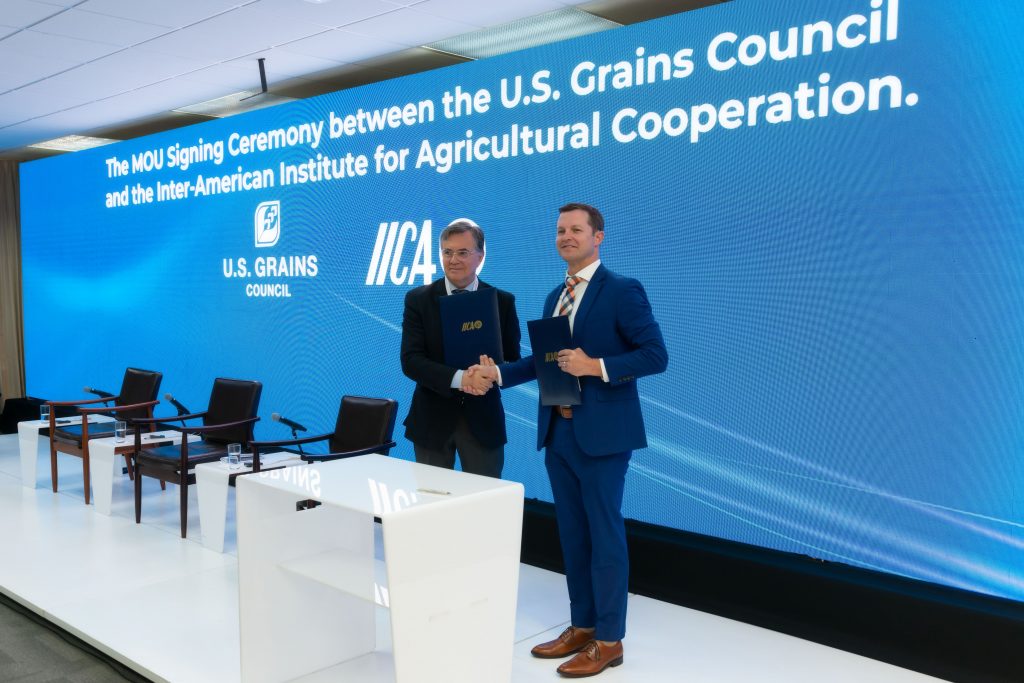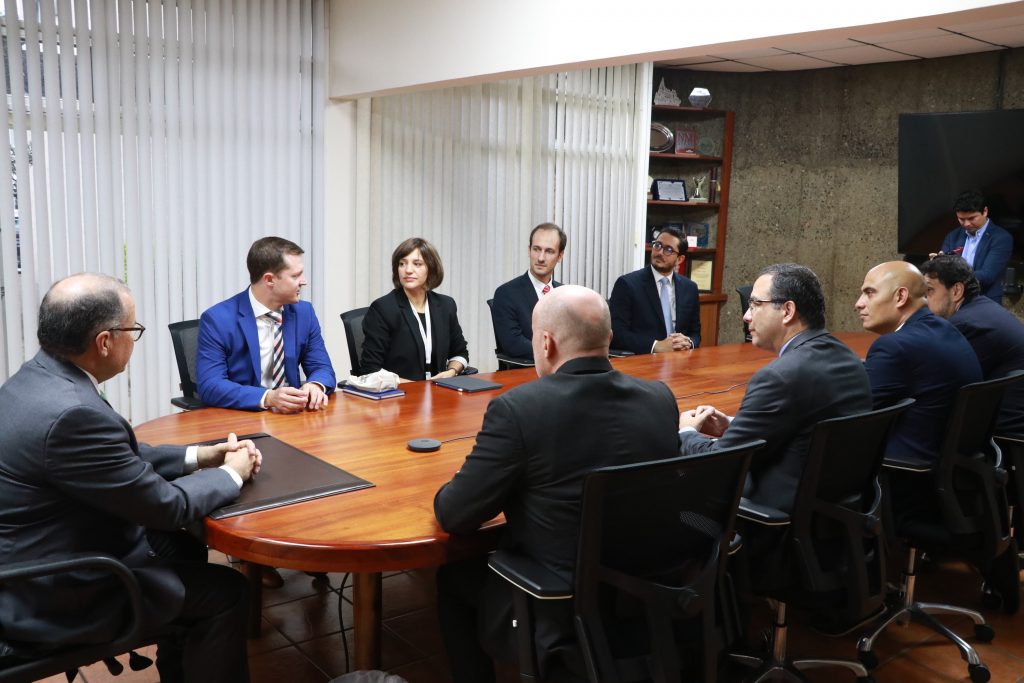The U.S. Grains Council’s (USGC’s) Latin America (LTA) office is leading efforts to promote ethanol blending across Central America and the Caribbean, reinforcing the region’s commitment to sustainable energy and reducing transportation-related emissions. This initiative was highlighted by the Council’s role in organizing the third “Cultivando Energía” (Growing Energy) conference, held last week at the Inter-American Institute for Cooperation on Agriculture (IICA) in Costa Rica.
More than 80 biofuel specialists and key public and private sector authorities from Central America—including Costa Rica, the Dominican Republic, El Salvador, Guatemala, Honduras and Panama—gathered to discuss the future of biofuels in the region. The event focused on the challenges and opportunities associated with biofuels, particularly ethanol, in advancing agro-industrial growth and achieving carbon-reduction targets.
USGC President and CEO Ryan LeGrand spoke at the conference and highlighted the organization’s commitment to the region’s energy transformation and praised the Costa Rican government’s leadership in advancing an ethanol blending program, particularly its collaboration between the USGC and the Costa Rican Ministry of Environment and Energy.
“We cannot limit ourselves to wishing for increased food production or relying on impractical solutions. It is essential to create sustainable markets through successful agriculture,” LeGrand said.
Attendees also learned about ethanol blending practices from beyond the Americas. USGC Regional Director for Southeast Asia and Oceania (SEA&O) Caleb Wurth shared insights from the Philippines and USGC Regional Director for South Asia Reece Cannady discussed developments in India. Additionally, U.S. experts, including Ron Lamberty from the American Coalition for Ethanol, Alex Buck from Iowa Corn and Keith L. Kline from Oak Ridge National Laboratory provided an in-depth look at the U.S. experience with ethanol blending.
During a panel discussion, energy leaders from Costa Rica, Guatemala, Honduras and Panama, outlined their countries’ biofuel strategies. Costa Rica Vice Minister of Energy Ronny Rodríguez, spoke about the nation’s goal of achieving a 10% ethanol blend in premium gasoline by 2026 and representatives from Guatemala and Panama discussed similar targets, with both countries planning to finalize agreements by 2024 and implement ethanol blending in the next two years.
The seminar culminated in a memorandum of understanding (MOU) signing between the Council and IICA. The agreement recognizes the essential role of biofuels in the energy transition and is a statement of intent from both organizations to provide policymakers and regulators with the necessary training and technical expertise to legislate the industry. IICA Director General Manuel Otero emphasized the importance of collaboration in turning discussions into actionable institutional frameworks and public policies and the Council’s logo was unveiled on the IICA’s “Wall of Friends,” symbolizing the strengthened partnership between the two organizations.
Before leaving Costa Rica, LeGrand and USGC Regional Director for LTA Marri Tejada met with Costa Rican Vice President Stephan Brunner and IICA Deputy Director Lloyd Day to discuss the Council’s support in shaping future policies to enhance ethanol use and trade and general agricultural sector growth in Costa Rica.
Learn more about the Council’s work in Latin America here.
About The U.S. Grains Council
The U.S. Grains Council develops export markets for U.S. barley, corn, sorghum and related products including distiller’s dried grains with solubles (DDGS) and ethanol. With full-time presence in 28 locations, the Council operates programs in more than 50 countries and the European Union. The Council believes exports are vital to global economic development and to U.S. agriculture’s profitability. Detailed information about the Council and its programs is online at www.grains.org.


